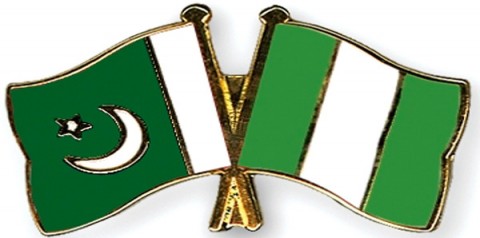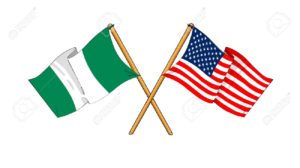Nigeria has emerged as the new Chair of the Gulf of Guinea Commission (GGC).
 At the 4th Assembly of Heads of State and Government of the GGC, Vice President Yemi Osinbajo called on member states to urgently address the socio-economic and security challenges facing the commission. He said the members would achieve this by collectively taking measures to check violations of domestic and international treaties in the Gulf.
At the 4th Assembly of Heads of State and Government of the GGC, Vice President Yemi Osinbajo called on member states to urgently address the socio-economic and security challenges facing the commission. He said the members would achieve this by collectively taking measures to check violations of domestic and international treaties in the Gulf.
The vice president identified the challenges facing the commission to include a rise in maritime insurance premiums for vessels coming into the Gulf, increased threats and reduced commercial traffic to the region as well as unregulated and unreported fishing. He also charged the member states to take measures to reduce pollution and environmental degradation in the Gulf of Guinea, lauding the individual efforts of some of the member states who improved the capacities and capability of their Navy and other relevant organisations to enable them perform their duties more effectively.
In his statement:
“In conformity with the theme of the 4th Ordinary Session which is; “A Vibrant Gulf of Guinea Region for sustainable Development’’, let us renew our commitment to making the Gulf of Guinea more effective and a truly vibrant partner in all our efforts, be it regional, national or international, to ensure a zone of peace, security and sustainable development for our countries, our peoples and other stakeholders in the region. This effort is capped by the establishment of the inter-regional coordination centre based in Yaoundé, Cameroun, as the collaborative link between the two maritime regional centres led by ECOWAS and ECCAS.’’
The National Security Adviser to the President, Babagana Monguno, observed that the meeting was a framework for consultations among the countries of the GCC, and that current situation in the Gulf of Guinea region especially the surge in illegal activities of piracy, illicit drugs, arms and human trafficking, illegal immigration, environmental pollution and degradation calls for greater attention from member countries to curb these activities. He maintained that an improvement of Maritime security could positively contribute to increased national, regional and continental stability and by the same token make a sustainable contribution to global security, He noting that Nigeria on its part had continued to develop the capacity of its armed forces particularly the Navy and other Maritime agencies to effectively tackle these challenges.
Mr. Monguno said other measures being implemented include; employment of the robust maritime domain awareness capability through the employment of the original maritime awareness capability and the Falcon Eye Project, activation of a Naval Taskforce to combat piracy and related attacks on shipping and oil and gas infrastructure, establishment of 37 check points by the Nigerian Navy to ensure continuous presence and monitoring of crude oil thefts in the Niger Delta area, the conduct of regular sea exercises by the Nigerian Navy such as exercise Eagle Eye, to improve its state of readiness and proficiency. He disclosed that Nigeria had also prepared the draft anti-piracy bill to give effect to the relevant provisions of the United Nations Conventions of the Law of the Sea of 1982 and the Convention for the Suppression of Illegal Acts at Sea 1982 and its protocol of 2005 to punish and deter piracy and other maritime crimes.
In his words:
“Suffice it to say that maritime security and economic prosperity are interdependent and mutually re-enforcing. The Nigerian Navy has been maintaining a strong presence in Maritime area with a band configuration and operations capabilities to deal with surface, air and underwater threats. Indeed, the surveillance capabilities of the Nigerian Navy and the Nigerian Maritime Administration and Safety Agency are being developed to ensure a secure environment within the domain as well as in the Gulf of Guinea. In addition, the Nigerian Navy has been cooperating with neighbouring countries and allies in Nigeria’s Maritime area of interest with a view to pursue security and safety.
Nigeria has ascribed to the continent’s maritime charter on maritime security safety and development in Africa, this was done on 15th of October, 2016 with the aim of strengthening the inter-agency for national coordination and cooperation to tackle maritime issues for the region. Nigeria has also ratified The United Nations Organised Crime Convention which enjoins parties to criminalize practices and combat that subject human beings to all forms of exploitation. Nigeria has adopted a strategic framework such as the 2015 Africa’s Integrated Maritime Strategy and the Yaoundé Code of Conduct for the repression of piracy and other illicit maritime activities within the Gulf of Guinea.’’
Mr. Monguno noted that the security challenges confronting the member states of the GGC which had continued to impact negatively on the development of the region, called for concerted and unrelenting efforts by all stakeholders.The NSA observed that the Gulf of Guinea provided a verifiable platform to tackling these numerous security challenges. He therefore, called for increased cooperation and collaboration among member states as well as support for the GGC to enhance its capacity to deliver on its mandate.
The Executive Secretary of the GGC, Florentine Ukonga, called on member states to support the proposed Revitalisation Strategy of the GGC, saying that under the proposal the secretariat would establish five new committees for effective management of the commission.
Members of the GGC, which was established by the Treaty signed in Libreville, Gabon, on July 3, 2001 included Cameroon, Togo, Benin, Equatorial Guinea, Angola, Democratic Republic of Congo, Gabon, Nigeria, Sao Tome and Principe and Ghana.


